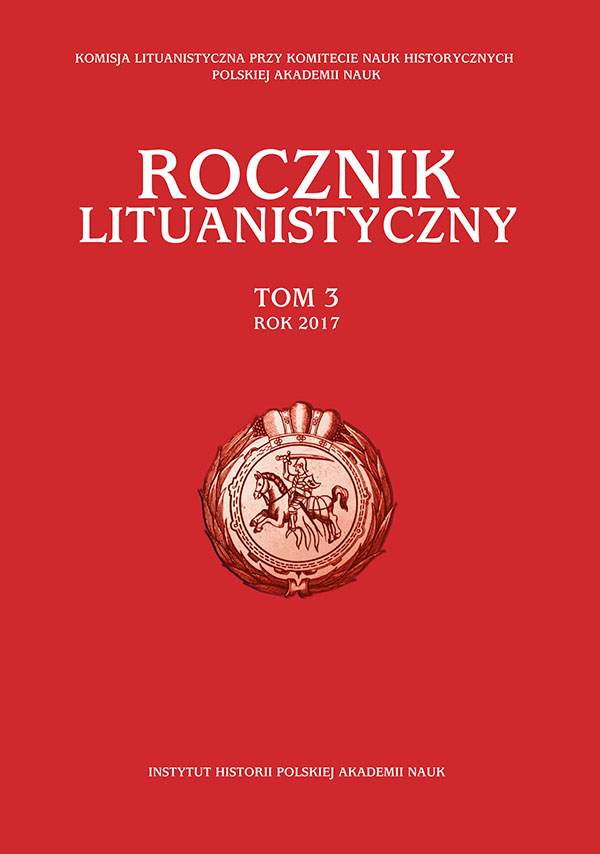Delegaci miasta Kowna na sejmach Rzeczypospolitej w drugiej połowie XVIII wieku
Delegates of the City of Kowno (Kaunas) to the Sejm of the Commonwealth in the Second Half of the Eighteenth Century
Author(s): Liudas GlemžaSubject(s): Political history, Social history, Electoral systems, 18th Century
Published by: Instytut Historii im. Tadeusza Manteuffla Polskiej Akademii Nauk
Keywords: towns; burghers; Sejm; delegations; Kowno (Kaunas);
Summary/Abstract: During the reign of King Stanislaus Augustus, the burghers of Kowno (Kaunas) sent their delegates to the Sejm of the Commonwealth as many as eight times, starting from the Election Sejm of 1764 to the last, Grodno (Hrodna) Sejm, in 1793. But, most probably, until the reforms of the Four-Year Sejm (1788–1792), their interests focused on local problems and matters concerning their city. In 1789, under the influence of Michał Swinarski’s text Wiadomości o pierwiastkowej miast zasadzie w Polsce (Knowledge of the Primary Principle of Cities in Poland), the instruction of the Kowno sejmik included the first political demands applying to the whole Commonwealth – that representatives of townsmen should participate, with voting rights, in every sejm. On the other hand, Kaunas had always been oriented toward the largest cities of the Grand Duchy of Lithuania – Wilno (Vilnius) and Grodno. In their requests to the Sejm, the burghers focused mainly on local affairs: commerce, crafts, city’s transport, but – in pursuing their objectives – they tried to build on changes within the whole Polish-Lithuanian Commonwealth. The example of Kowno allows us to presume that Lithuanian townsmen were more active politically than previously thought in the literature on the subject.
Journal: Rocznik Lituanistyczny
- Issue Year: 2017
- Issue No: 3
- Page Range: 155-172
- Page Count: 18
- Language: Polish

